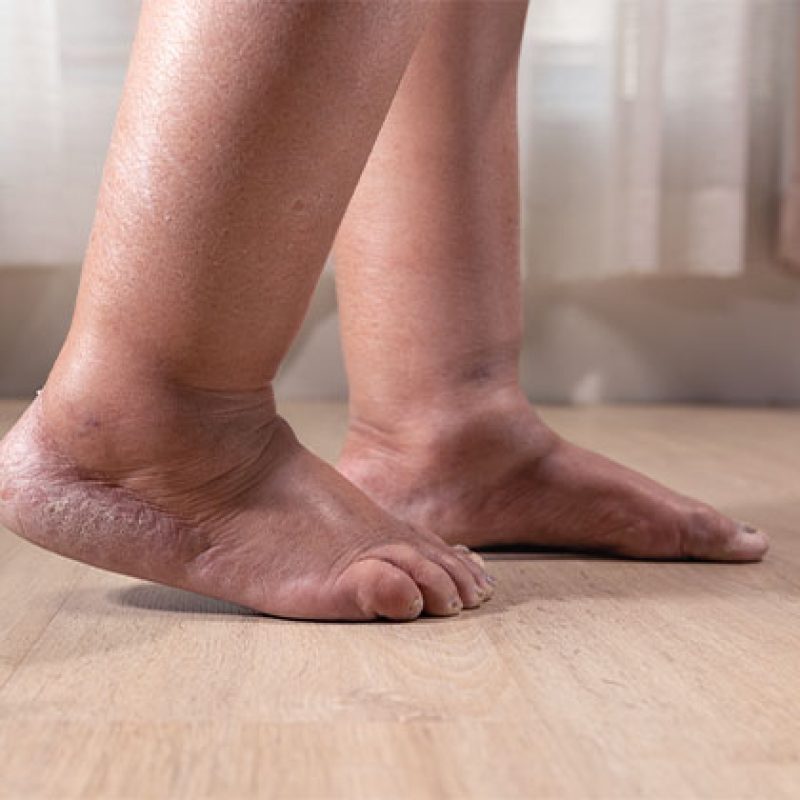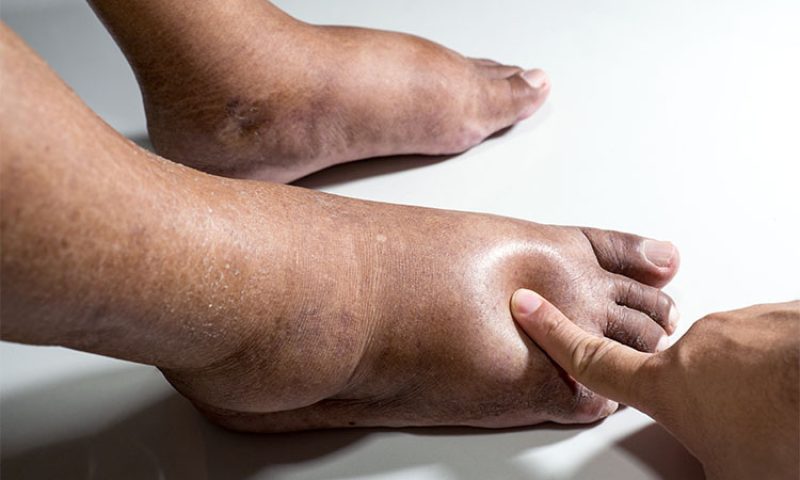What is Edema?
Edema is swelling caused by extra fluid collecting in your body’s tissues. It happens when tiny blood vessels leak fluid into nearby tissues, causing swelling. The influx of fluid causes that portion of the body to swell. It can happen anywhere in the body but is most common in the legs and feet.
Schneck Primary Care employs experienced providers who can pinpoint the cause of edema, which might indicate a more serious issue, and offer resources and tools for treating it. In some cases, our primary care providers may refer patients to Schneck Rehabilitation for further treatment and mobility restoration.
What Causes Edema?
Edema can sometimes be a sign of serious health problems, like issues with your kidneys, liver, or heart, or blood clots in the legs. If you have these illnesses and get them treated, the edema will get treated along with it. Edema can also happen as a side effect of certain medications, like those for high blood pressure, diabetes, or pain.
In other cases, edema happens as a result of seemingly normal life experiences. For example, women who are premenstrual or pregnant may experience edema. Having too much salt in your diet or sitting in one position for a prolonged period may also lead to edema. Essentially, anything that inhibits proper blood flow in the body, or anything that causes fluid retention, may lead to edema.
How to Prevent Edema
If you commonly do the things that cause winter edema, like eating too much salt or not getting enough exercise, make lifestyle changes to prevent it. This can look like a variety of methods, but the primary focus should be modifying your lifestyle to one that is healthier.
For example, stay active by doing light exercise, like walking around your home. Drink plenty of water and try to limit salty snacks.
When to Seek Medical Attention for Edema
We still suggest that you see a primary care doctor, even if you think your edema is minor. It’s a good idea to have a professional look at it just to make sure it’s not a symptom of an underlying condition.
We highly suggest you seek medical attention if the skin around the swollen area is stretched/shiny and if, after you poke it, the dimple doesn’t go away. If you are experiencing symptoms like trouble breathing, chest pain, leg pain, or rapid or irregular heartbeat, contact Schneck Medical Center immediately. These symptoms may point to a more serious health problem that needs immediate care.
Edema Management at Schneck
Whether this is your first time experiencing edema or you’ve dealt with persistent edema for years, the primary care team at Schneck can help. Our specialists will meet with you to discuss your concerns, provide a comprehensive diagnosis, and get you on a treatment plan to help you manage the condition. This may include lifestyle changes or modifying any medications you may be taking that are causing the swelling. Furthermore, you may undergo physical therapy with Schneck Rehabilitation to help move fluid out of the built-up area and relieve discomfort.
If you are experiencing chronic edema, we will refer you to Schneck Vein Center for lymphedema treatments. There, we use innovative and advanced technology to provide our patients with minimally invasive, seamless treatments. At Schneck, we provide all-encompassing care for every patient experiencing edema.



